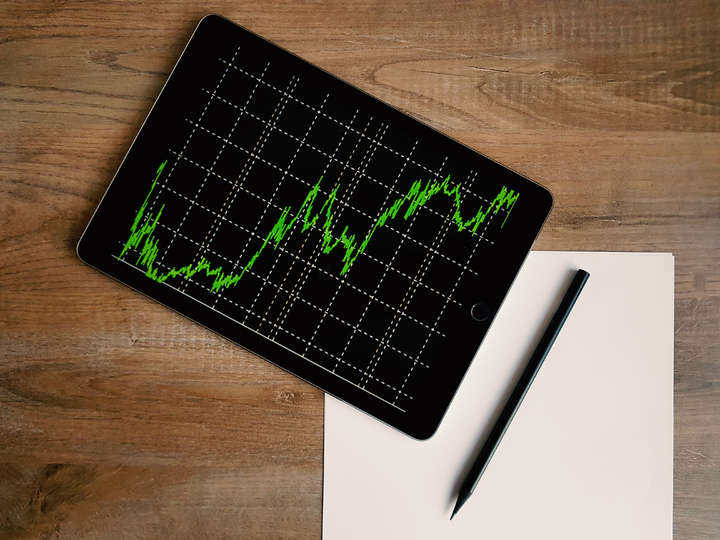2020 has been a tough year for the finance industry. The banking sector failed to generate any interest income while the deposits kept declining. Similarly, stock markets started crashing, halting trading activities in the economy. To cope with these challenges, finance professionals want to create a resilient and accessible financial system that people trust. In addition, they are focusing on creating a financial model, indifferent to the economic conditions.

Apart from this, experts are leveraging technology to bridge the gaps and reduce costs. Hence, the banking industry would offer branchless services to reduce rental expenses and office costs. Likewise, FinTech would help companies measure risks, reducing the likelihood of losses in the long term. In short, we will be witnessing a more robust and tech-savvy financial landscape in the coming years.
However, if you aren’t up to date with the evolutions of the finance industry, let us show you the ropes. Here we are highlighting what the future of global finance holds for the world.
A Rise in Financial Accountability
One thing the global pandemic has taught is that crises can emerge out of nowhere. Therefore, now companies would be taking a more proactive approach to manage and mitigate risk. While many rely on AI-enabled devices, others have switched to enterprise risk management (ERM) software. It gives unique insights into a company’s financials and supply chain – the two sources of risk for organizations.
The management accountants and finance experts can even predict disruptions and economic disasters with this software. Once they know how inflation or interest rates will impact financial institutes, they will prepare strategies to avoid losses. Many professionals believe these applications to be the future of accounting since it holds power to strengthen the financial landscape. For instance, if your company has given hefty loans to a single client, the software will send alerts indicating credit risk. After all, if that customer goes bankrupt, your entire company’s future can be at stake.
International Finance
Are you aware of international finance? Well, it is a branch of financial economics, handling financial relations between two or more states. Let’s say if the US imposes a tariff on Japanese products, the government of Japan might retaliate. Surprisingly, the relationships and dynamics in the global financial systems are likely to change. Instead of retaliation, the policymakers are emphasizing the international monetary system and exchange rate differentials.
In addition, the government is formulating strategies for international businesses to provide opportunities for capitalists and exports. In simple words, we would see a more diverse and open global trading network, reducing the overall import costs.
Branchless Banking Systems
Today, the wonders of online banking are no secret to anyone. You can transfer funds and pay bills right from your smartphones, but that’s not all. The trend of cashless transactions would be extending towards the banking industries. The handy branchless technology is allowing banks to provide services remotely and reduce overhead costs. It offers a place where lots of assets will exchange hands every day without exhausting resources.
Another reason why branchless banks will grow in the future is because of optimal security protocols. The advances in mobile identification methods combine industrial-grade biometrics and human-to-human interaction. In turn, customers can verify their identity and perform a transaction instantly. Besides, some banks have even integrated biometric credentials to ensure no one else can access your digital account, eliminating the risk of cyberattacks.
Shift to Digital Payment Solutions
Undeniably, cash had a crucial role in society before 2020, but now, contactless payments have become standard. People prefer paying through credit cards, PayPal, and Venmo since it is more flexible and convenient. The rapid popularity of digital payments is encouraging vendors to rethink their supply chain models. Instead of sending checks to businesses, they can directly transfer payments to business bank accounts.
The spread of digital payment methods also means the new point of sale can be smartphones, TV, watch. Moreover, we would see a new payment mode – all thanks to cryptocurrencies. After Starbucks and Microsoft, many more businesses would be accepting payments through crypto, increasing purchasing power. Believe it or not, the evolution of new payment modes is likely to be revolutionary for the finance world.
Increasing Popularity of Euro Markets
Have you heard of forex? As a foreign exchange market, the euro market is also a financial marketplace that deals with euros. It also consists of banks and financial institutes outside of the United Kingdom where different currencies originate. Due to the rising value of the British pound against the US dollar, the euro market is likely to expand rapidly. British banks would become a popular choice for multinational corporations because of their substantial currency value.
Moreover, the British government would be easing tax regulations to captivate investors. Hence, traders and investors will get an opportunity to expand a stock of money and credit outside the control of national authorities. Remember, the absence of regulations and transactional costs would make this marketing more appealing to people worldwide.
Final Thoughts
The global finance industry would see the emergence of a post-covid economy. Mergers and acquisitions will be back in action, and finance leaders will devise new strategies to strengthen the landscape. In addition, FinTech would be changing the dynamics of the finance world. From digital payment modes to branchless banking – the technological advancements will upscale operations in the finance sector.

